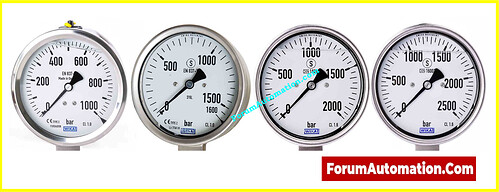WIKA is a well-known brand around the world for pressure measurement, yet some users have complained about some of their pressure gauges. One problem that keeps coming up is that gauges breakdown because of mechanical vibration, which is common in places with a lot of vibration, like factories. Users say that even though WIKA sells liquid-filled gauges to help with this, the damping effect isn’t always strong enough, which causes the pointer to fluctuate and readings to become less accurate with time.
Another worry is that it is sensitive to too much pressure. WIKA gauges, especially those with Bourdon tubes, can get permanently bent out of shape when they are used in situations where pressure spikes happen a lot. This makes them less accurate. Some WIKA models come with overload protection, but not all of them do. This means that users have to go through a lot of complicated specifications to find the right model.
People also say that corrosion and clogging are problems, especially when gauges are used in dirty or aggressive media. There are stainless steel versions, but they cost more. The regular models may not hold up well in harsh environments, which could cause them to break down early.
Finally, people think that the product documentation and assistance aren’t clear enough, especially when it comes to choosing gauges for certain uses. There are so many models and combinations that it might be hard to choose the right one, and imprecise instructions have caused problems with operations.
WIKA pressure gauges are accurate and come in a wide range of styles, but they could not work well in demanding circumstances unless you choose the right one and take extra precautions.
